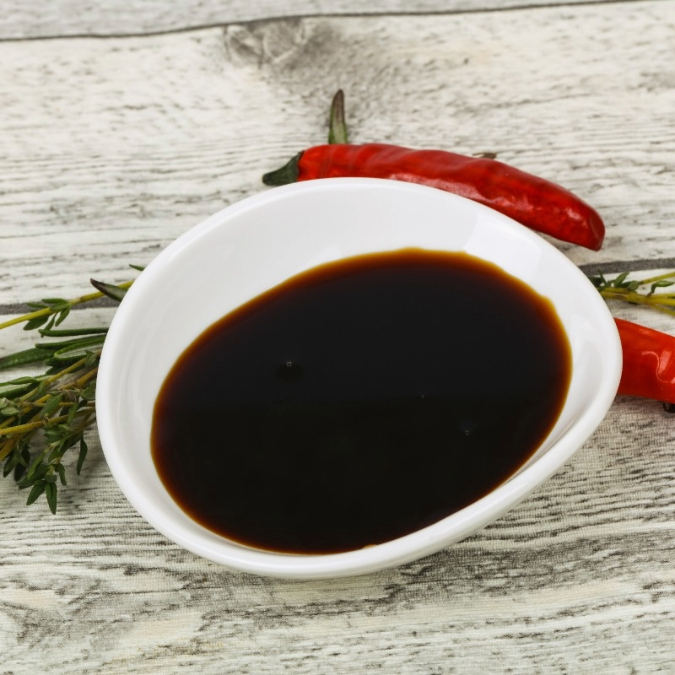
English has many confusing rules and conventions, making it a challenging language to learn. There are some words that even native speakers struggle to say and spell. Here are 15 English tongue-twister examples that will test your verbal abilities no matter how long you’ve been speaking the language.
1. Worcestershire

Worcestershire (pronounced “WOO-stuh-sher”) is a savory brown sauce that was created in Worcester, England. Many Americans have a hard time saying and spelling this word, possibly because of its British origins.
2. Colonel

We all know a colonel is a high-ranking officer in the military. However, many English speakers say this word wrong due to its confusing spelling. It’s actually pronounced the same way as the word “kernel,” making it one of the trickier words in the English language.
3. Quinoa

Quinoa has become an increasingly popular health food despite the fact that it’s hard to say out loud. This English tongue-twister is actually pronounced “KEEN-wah” (and not “keen-OH-uh” as the spelling would suggest). Luckily you don’t have to say this tasty grain’s name correctly to enjoy eating it!
4. Onomatopoeia

An onomatopoeia is a word that mimics the sound it describes, such as boom, boing, clang, or pow. Considering its meaning, it’s ironic that onomatopoeia is one of the hardest words to say and spell. The correct pronunciation of this English tongue-twister is “on-uh-mot-uh–PEE–uh.”
5. Anemone

Contrary to popular belief, anemones aren’t actually plants. Although they look like colorful flowering bushes, they’re actually aquatic animals.
Saying anemone out loud can be just as confusing. At first glance, it looks like it only contains two or three syllables. But it’s actually a four-syllable word that’s pronounced “ah-NEM-oh-nee.”
6. Synecdoche

Synecdoche is a figure of speech that involves describing something using one of its parts. An example of synecdoche is referring to a car as a “nice set of wheels.”
It can be difficult to remember the meaning of synecdoche, but it’s even harder to say it. Although it appears to be a three-syllable word, it actually contains four syllables and is pronounced “sih-NECK-duh-key.”
7. Lieutenant

Lieutenant is a term used to refer to a low-ranking military officer. Although the meaning is the same everywhere you go, the pronunciation differs between countries.
In the United States, we say “loo-TEN-ant.” Across the pond in the UK, people pronounce it “lef-TEN-ant.” In our opinion, the British way is much harder and turns lieutenant into an English tongue-twister.
8. Comfortable

We recently found out that we’ve been saying the word “comfortable” wrong our whole lives. It’s apparently supposed to be pronounced “KUHMF-tr-bl” with emphasis placed on the first syllable. Who knew?
This makes it much harder to say, so we may keep mispronouncing it by breaking it up into four syllables. Don’t judge!
9. Coup

It can be hard to remember how to pronounce “coup” properly because it has a silent letter. You’re not supposed to say the “p” at the end of the word, making the correct pronunciation “coo.”
10. Epitome

Epitome is the epitome of words that are hard to pronounce. Many people incorrectly say it as “EP-i-tohm,” which is understandable based on the way it’s spelled. But it’s supposed to be broken down into four syllables like so: “uh-PI-tuh-mee.” The more you know!
11. Gyro

Gyro is another word that trips us up because you aren’t supposed to pronounce it with a hard “g.” The correct way to say it is actually “YEE-ro.” Although gyro is an English tongue-twister, you shouldn’t let that prevent you from ordering this delicious sandwich!
12. Acai

Why do so many healthy foods have names that are hard to pronounce? Acai is a berry that tastes delicious in smoothies, but its name doesn’t quite roll off the tongue. The “c” is actually supposed to be pronounced like an “s.” So the correct way to say this English tongue-twister is “aa-saa-EE.”
13. Isthmus

An isthmus is a small strip of land that connects two larger land masses. This word is hard to say because of the string of consonants right in the middle. The correct pronunciation is “I-smus” which can be tough for some to master.
14. Queue

Queue means “to line up” and is more commonly used in British English. Due to the strange combo of vowels, it can be difficult to figure out how to say this word properly. Surprisingly, queue is pronounced the same way as a “cue” ball. So all those extra vowels probably aren’t necessary.
15. Sixth

Sixth is an English tongue-twister for the same reason as isthmus—it has a strange combo of consonants that trips people up. When properly pronounced, sixth sounds like “siksth.” But we’re rarely able to say it right!
Practice Makes Perfect

Many English words are said differently than they’re spelled, which can make English a difficult language to master. But luckily practice makes perfect. Researching tongue-twisters will help you improve your pronunciation and level up your language skills.
Read More
The Evolution of Slang: 10 Old Slang Terms Explained
14 Millennial Phrases That Are Becoming More Annoying Than Trendy
Vicky Monroe is a freelance personal finance and lifestyle writer. When she’s not busy writing about her favorite money saving hacks or tinkering with her budget spreadsheets, she likes to travel, garden, and cook healthy vegetarian meals.
Leave a Reply